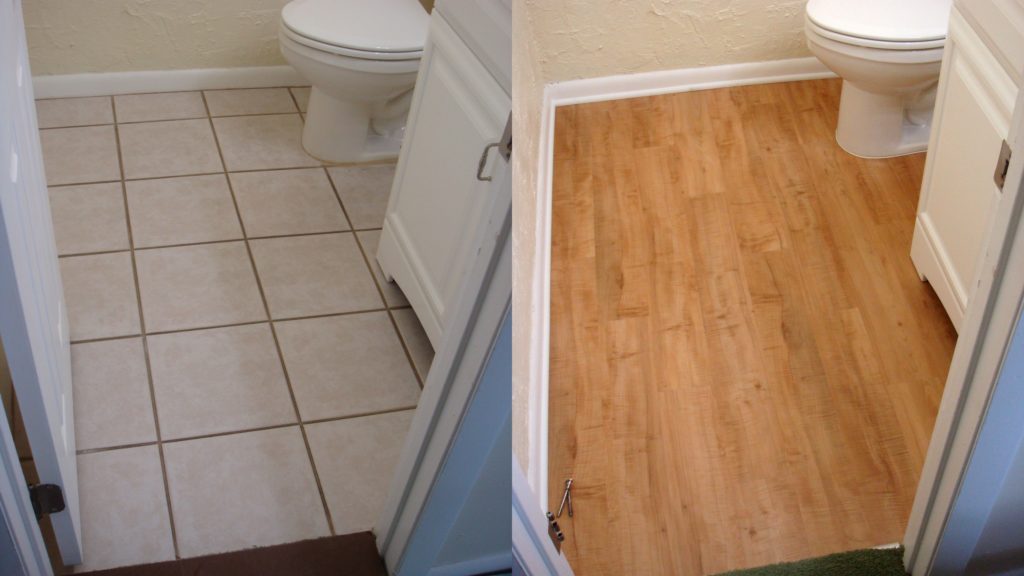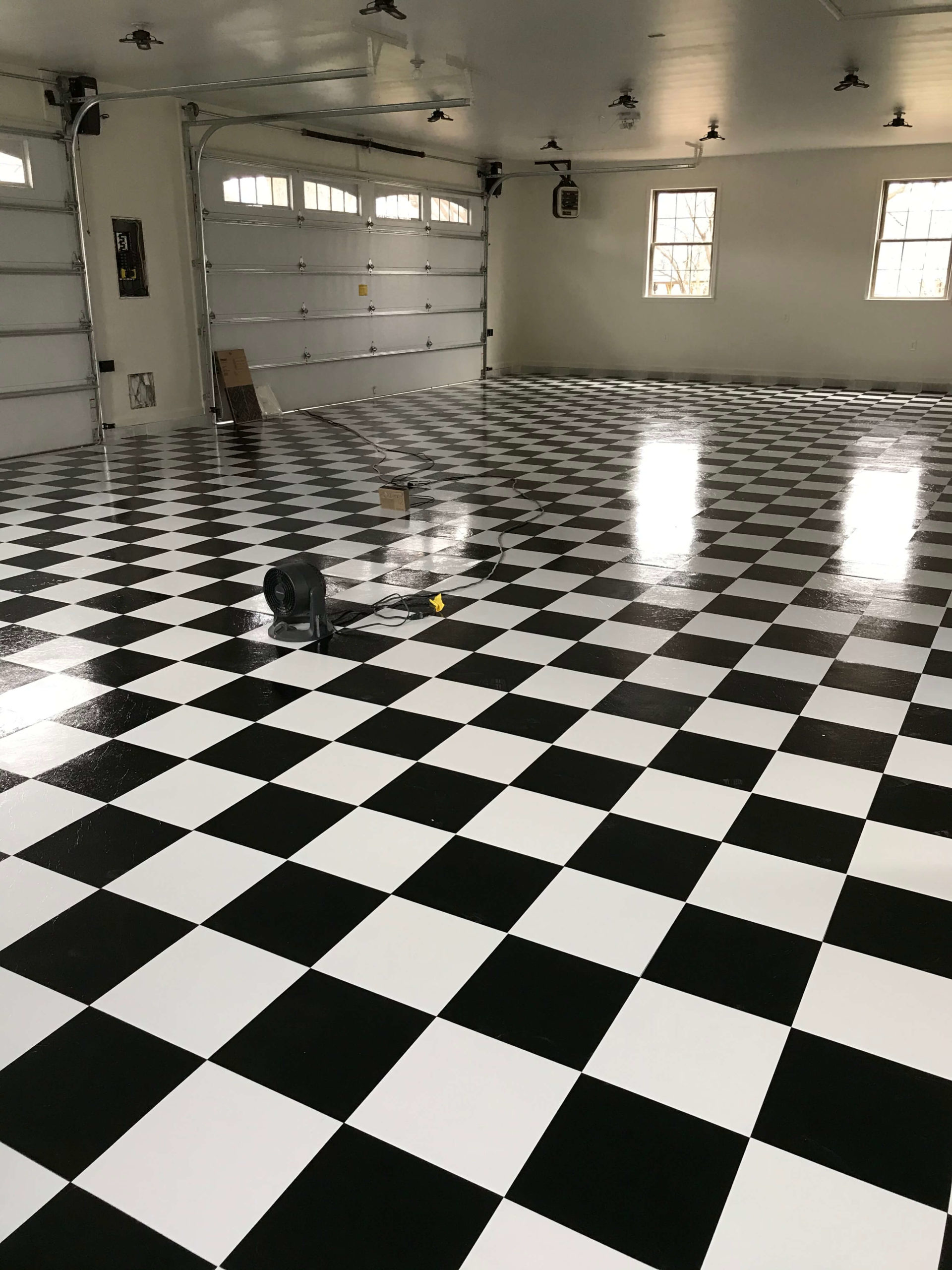Imagine this: you’re finally tackling that garage makeover you’ve been dreaming of. You envision a space that’s not just for storing old boxes and tools, but a workshop, a home gym, or even a cozy hangout spot. You want a floor that’s durable, easy to clean, and visually appealing – and your eyes land on vinyl flooring. But hold on, can you really put vinyl flooring in a garage?

Image: phenergandm.com
That’s the question many homeowners grapple with. Garages are exposed to unique challenges: fluctuating temperatures, spills, and even the occasional drop of a weighty object. Vinyl flooring, known for its practicality and affordability, seems like a winning solution, but can it withstand the garage’s unforgiving environment? Let’s dive into the world of garage flooring and see if vinyl truly fits the bill.
Understanding the Challenges of Garage Flooring
Before we explore the suitability of vinyl, we need to acknowledge the unique challenges faced by garage floors. Garages aren’t just storage spaces; they’re often workplaces, recreation areas, and even temporary living quarters during home renovations. That means the floor needs to withstand a lot:
- Temperature Fluctuations: Garages are notorious for temperature extremes, especially in areas with distinct seasons. Flooring materials need to be able to expand and contract without cracking or buckling.
- Spills and Stains: From paint splatters to oil leaks, garages are prone to spills and stains. A durable flooring surface that’s easy to clean is essential.
- Heavy Traffic: Whether it’s moving boxes, working on projects, or just walking around, garage floors experience heavy foot traffic. This can lead to wear and tear, so a resilient surface is crucial.
- Moisture and Humidity: Because garages lack proper ventilation, moisture can build up, creating a breeding ground for mold and mildew. Flooring materials need to be resistant to moisture to prevent damage and health issues.
Vinyl Flooring: A Suitable Choice for Garages?
Vinyl flooring has gained immense popularity in recent years, thanks to its versatility, affordability, and wide range of styles. But can it conquer the challenges of a garage environment? The answer is yes, but with some important considerations.
- Durability: Many types of vinyl flooring are designed for high-traffic areas. They are resistant to scratches, dents, and scuffs, making them suitable for even the busiest garages. However, the thickness and composition of the vinyl can impact durability. Opt for thicker, reinforced vinyl tiles or planks for greater resilience.
- Water Resistance: Modern vinyl flooring is known for its water resistance, making it a good choice for areas prone to spills and cleaning accidents. However, full water-proofing is not guaranteed. It’s best to choose vinyl with a water-resistant core or sealant for better protection.
- Temperature Tolerance: Some vinyl flooring is more tolerant of temperature fluctuations than others. Look for vinyl with a high thermal expansion and contraction rate to ensure it doesn’t warp or crack with changing temperatures.
- Cleaning Ease: Vinyl flooring is a cinch to clean! It’s typically non-porous, so spills and stains can be easily wiped away with a damp mop. This is a huge advantage in a garage where spills are common.
- Aesthetics: Vinyl flooring offers an incredible variety of styles to match any garage aesthetic, from wood-look planks to stone-inspired tiles. You can create a modern, industrial, or even classic look to personalize your space.
Types of Vinyl Flooring for Garages
Not all vinyl flooring is created equal. When choosing for your garage, consider these common options:
- Luxury Vinyl Tile (LVT): LVT offers the look of natural stone or wood with superior durability. It comes in diverse patterns and colors, making it perfect for creating a stylish space.
- Luxury Vinyl Plank (LVP): Similar to LVT, LVP replicates the look of real wood with greater resilience and moisture resistance. It’s ideal for garages that need the warmth and classic charm of wood but with low-maintenance benefits.
- Sheet Vinyl: Sheet vinyl offers a budget-friendly option and comes in a variety of colors and patterns. It’s typically easier to install than tiles or planks, but may not be as durable or as resistant to spills.

Image: phenergandm.com
Installation and Maintenance Tips
To ensure your vinyl flooring thrives in your garage, proper installation and maintenance are key:
- Subfloor Preparation: Before laying any vinyl flooring, ensure the subfloor is smooth, level, and free of debris. Uneven surfaces can lead to cracking and warping.
- Proper Underlayment: A good underlayment provides cushioning, moisture protection, and helps smooth out minor subfloor imperfections. Consider a moisture-resistant underlayment specifically designed for garages.
- Installation Method: Vinyl flooring can be installed using adhesive, snap-together systems, or floating installation methods. Choose the method that best suits your skills and the characteristics of your garage.
- Regular Cleaning: A routine cleaning regimen is crucial. Sweep or vacuum regularly to remove dirt and debris buildup, and mop with a mild cleaner as needed.
Expert Insights for Long-Lasting Garage Flooring
Here’s what experts in the flooring industry recommend for optimal garage flooring:
- Consider the “Foot Traffic” Factor: If you expect heavy equipment or machinery to be used in the garage, prioritize durability over aesthetics. thicker vinyl tiles or reinforced options are recommended.
- Choose the Right Adhesive: For adhesive-based installation, use a strong, moisture-resistant adhesive specifically designed for vinyl flooring.
- Ventilate for Longevity: Ensure your garage has adequate ventilation to prevent moisture buildup, which can cause damage to vinyl flooring.
Can You Put Vinyl Flooring In A Garage
Conclusion: A Vinyl Flooring Revolution for Your Garage
Choosing the right flooring for your garage is a decision that can transform your space from an unorganized mess into a functional and stylish haven. Vinyl flooring, with its versatility, durability, and affordability, presents a compelling option for many homeowners. By understanding the challenges of garage environments, selecting the right type of vinyl, and following expert tips for installation and maintenance, you can create a floor that will enhance your garage for years to come. So, go ahead, unleash your creative vision and turn your garage into the space you’ve always dreamed of!






